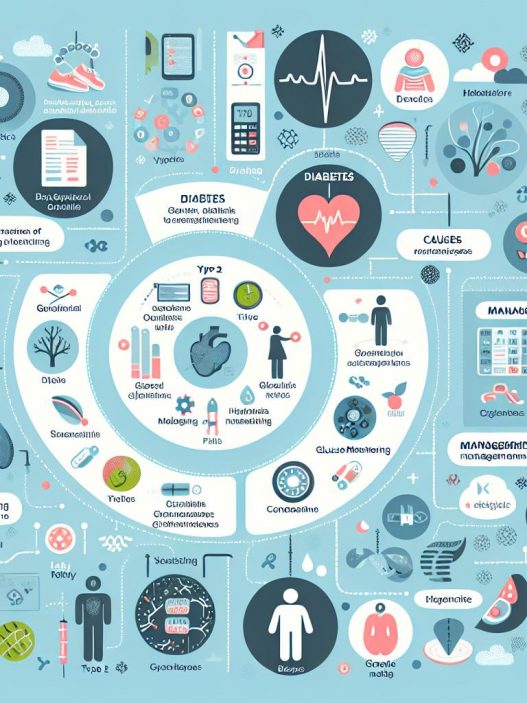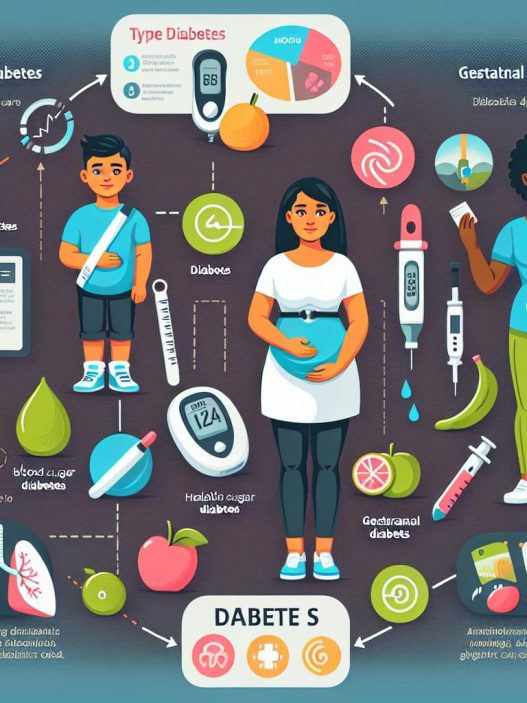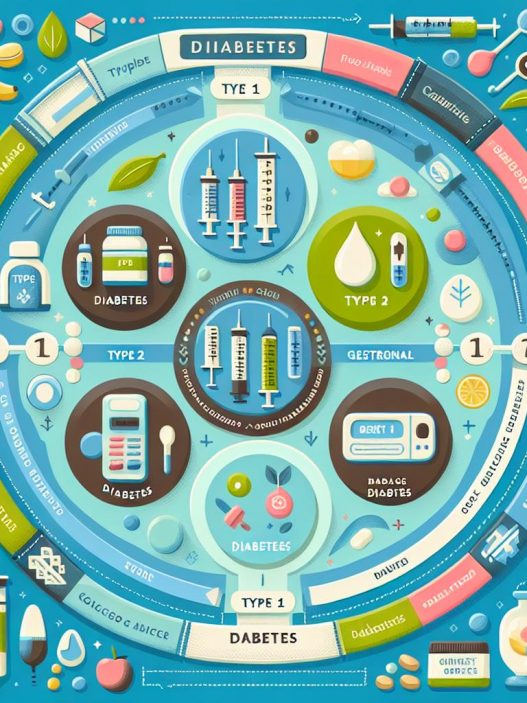# Understanding Diabetes: Types, Causes, and Insights into Managing Your Health
Diabetes is a complex and chronic condition that affects millions of people worldwide. Understanding diabetes is crucial for effective management and prevention strategies. In this comprehensive article, we will explore the various types of diabetes, their causes, symptoms, and valuable insights into managing your health. By the end, you’ll be equipped with the knowledge needed to take control of your diabetes journey.
What is Diabetes? A Comprehensive Overview
Diabetes mellitus, commonly referred to as diabetes, is a metabolic disorder characterized by elevated blood sugar (glucose) levels over an extended period. The condition can lead to serious health complications, including heart disease, kidney failure, and nerve damage. Furthermore, managing diabetes requires a holistic understanding of its types, the underlying causes, symptoms, and effective strategies for maintaining optimal health.
The two main types of diabetes are Type 1 and Type 2, which have distinct pathophysiological mechanisms. Type 1 diabetes is primarily an autoimmune condition where the immune system attacks insulin-producing beta cells in the pancreas, leading to absolute insulin deficiency. Type 2 diabetes, on the other hand, is characterized by insulin resistance and relative insulin deficiency, often associated with obesity and lifestyle factors. There is also gestational diabetes, which occurs during pregnancy and generally resolves after childbirth.
Types of Diabetes: Understanding the Differences
Type 1 Diabetes
Type 1 diabetes is usually diagnosed in children and young adults, though it can occur at any age. The exact cause remains unclear, but it is believed to involve genetic and environmental factors triggering an autoimmune response that destroys insulin-producing beta cells in the pancreas. As a result, individuals with Type 1 diabetes require lifelong insulin therapy to survive.
The symptoms of Type 1 diabetes often appear suddenly and may include excessive thirst, frequent urination, extreme hunger, fatigue, and blurred vision. Rapid diagnosis and treatment are crucial, as untreated diabetes can lead to ketoacidosis, a life-threatening condition. Ongoing management requires regular blood sugar monitoring, adherence to an insulin regimen, and lifestyle modifications to maintain blood glucose levels within a target range.
Type 2 Diabetes
Type 2 diabetes is the most prevalent form of diabetes, accounting for about 90-95% of all cases. It is often associated with obesity, physical inactivity, and poor dietary choices. In Type 2 diabetes, the body becomes resistant to insulin, meaning that the cells no longer respond effectively to insulin. Over time, the pancreas struggles to produce enough insulin to compensate for this resistance, leading to elevated blood glucose levels.
The onset of Type 2 diabetes is usually gradual, and many individuals may be unaware of their condition until complications arise. Common symptoms include increased thirst, frequent urination, fatigue, and blurred vision. Effective management of Type 2 diabetes includes lifestyle modifications such as a healthy diet, regular exercise, and, in some cases, medication or insulin therapy. Early intervention is vital to prevent or delay complications such as heart disease, neuropathy, and kidney issues.
The Causes of Diabetes: Unpacking the Risk Factors
Genetic Factors
Genetics play a significant role in the development of diabetes. Family history is a crucial risk factor, particularly for Type 2 diabetes. If a parent or sibling has diabetes, the likelihood of developing the condition increases significantly. Researchers are continually investigating specific genes associated with diabetes susceptibility, but the interplay between multiple genes and environmental factors remains complex.
For Type 1 diabetes, genetic predisposition is evident; however, it is not solely responsible for its development. Environmental triggers, such as viral infections and autoimmune responses, contribute to the onset and progression of the disease. Understanding these genetic connections can help identify individuals at higher risk and facilitate early intervention.
Lifestyle Factors
Lifestyle choices significantly impact the risk of developing Type 2 diabetes. Obesity, particularly central obesity, is one of the most significant risk factors. Excess body fat, especially in the abdominal region, leads to insulin resistance, making it more challenging for the body to regulate blood sugar levels effectively.
Moreover, sedentary behavior and lack of physical activity contribute to obesity and increased diabetes risk. A diet high in processed foods, refined sugars, and unhealthy fats can also elevate the likelihood of developing diabetes. By adopting a balanced diet and maintaining an active lifestyle, individuals can significantly reduce their risk of Type 2 diabetes.
Other Contributing Factors
Other factors influencing the risk of diabetes include age, hormonal changes, and certain medical conditions. As individuals age, the risk of developing Type 2 diabetes increases due to decreased muscle mass, reduced physical activity, and hormonal changes that affect insulin sensitivity.
Furthermore, conditions such as polycystic ovary syndrome (PCOS), hypertension, and cardiovascular diseases are associated with a higher risk of developing diabetes. Regular health screenings, particularly for those with known risk factors, can help identify potential issues early on and facilitate timely management strategies.
Managing Diabetes: Essential Strategies for Better Health
Nutrition and Meal Planning
Proper nutrition is a cornerstone of diabetes management. A well-balanced diet can help regulate blood sugar levels and promote overall health. Individuals with diabetes should focus on consuming whole foods, including vegetables, whole grains, lean proteins, and healthy fats. Portion control is also crucial in managing carbohydrate intake, as carbohydrates significantly impact blood glucose levels.
Meal planning can be instrumental in maintaining stable blood sugar levels. By preparing meals in advance and incorporating a variety of foods, individuals can ensure they are meeting their nutritional needs while keeping their blood sugar stable. Consulting with a registered dietitian can provide personalized guidance tailored to individual health goals.
Exercise and Physical Activity
Physical activity plays a vital role in managing diabetes. Regular exercise helps improve insulin sensitivity, lower blood sugar levels, and reduce body fat. A combination of aerobic exercise (such as walking, swimming, or cycling) and strength training (like weightlifting or resistance exercises) is recommended for optimal benefits.
Incorporating physical activity into daily routines doesn’t have to be overwhelming. Simple changes, such as taking the stairs instead of the elevator, walking during lunch breaks, or participating in community exercise classes, can significantly contribute to overall fitness and health improvements.
Regular Monitoring and Medication
For individuals with diabetes, monitoring blood sugar levels regularly is essential for effective management. This helps identify patterns and trends, allowing for timely adjustments to treatment plans. Continuous glucose monitors (CGMs) are increasingly popular, providing real-time data and insights into glucose fluctuations throughout the day.
In addition to lifestyle modifications, many individuals with diabetes may require medications or insulin therapy. Working closely with healthcare providers to determine the appropriate treatment plan is critical. Adherence to prescribed therapies, regular check-ups, and staying informed about new treatment options can enhance overall diabetes management and health outcomes.
Understanding Complications of Diabetes: What to Watch For
Short-term Complications
Diabetes can lead to various short-term complications, including hypoglycemia (low blood sugar) and hyperglycemia (high blood sugar). Hypoglycemia can occur if a person does not consume enough carbohydrates, exercises excessively, or takes too much insulin. Symptoms may include dizziness, confusion, shaking, and sweating, which require immediate treatment with fast-acting carbohydrates like glucose tablets or juice.
Hyperglycemia, on the other hand, may develop due to insufficient insulin, illness, or excessive carbohydrate intake. Chronic hyperglycemia can lead to more serious complications, such as diabetic ketoacidosis (DKA) or hyperglycemic hyperosmolar state (HHS), both of which are medical emergencies. Education on recognizing these symptoms and knowing when to seek help is crucial for individuals living with diabetes.
Long-term Complications
Over time, untreated or poorly managed diabetes can lead to severe long-term complications. Cardiovascular disease, including heart attack and stroke, is a leading cause of death among individuals with diabetes. High blood sugar levels contribute to damage in blood vessels and nerves, increasing the risk of cardiovascular conditions.
Diabetic neuropathy, characterized by nerve damage, can lead to sensations of tingling, pain, or loss of feeling in the extremities. This complication heightens the risk of injuries and infections, potentially leading to amputations in severe cases. Regular foot care and monitoring for sores or injuries are critical preventive measures.
Kidney and Eye Health
Diabetes significantly impacts kidney function, increasing the risk of diabetic nephropathy, a condition that can progress to kidney failure. Regular screenings for kidney function through blood tests and urine analyses are essential for early detection. Maintaining blood pressure and blood sugar levels within target ranges can help reduce the risk of kidney complications.
Additionally, diabetes can lead to retinal damage, resulting in diabetic retinopathy, which can cause vision impairment or blindness. Routine eye examinations are vital in spotting early signs of diabetic eye disease, enabling appropriate intervention and treatment to safeguard vision.
Building a Support System: The Importance of Community and Education
Finding Support Networks
Living with diabetes can be challenging, but having a robust support system can make a significant difference. Support networks can include family, friends, healthcare professionals, and diabetes education groups. Engaging with others who share similar experiences can provide invaluable insight, encouragement, and emotional support during difficult times.
Consider joining local diabetes support groups or online communities where individuals can exchange knowledge, success stories, and coping strategies. Educational workshops, webinars, and conferences also offer opportunities to learn from experts and gain up-to-date information on diabetes management.
Staying Informed: Continuous Learning
Education is a powerful tool for effectively managing diabetes. Individuals should stay informed about the latest research, treatment options, and lifestyle recommendations. Engaging with reputable sources, such as diabetes organizations, healthcare providers, and nutrition experts, can ensure that individuals receive accurate and current information.
Regularly attending diabetes education classes can empower individuals to take charge of their health. Learning about blood sugar monitoring, meal planning, and how to handle diabetes-related challenges can foster independence and confidence in managing the condition proactively.
Advocating for Yourself
Individuals living with diabetes should feel empowered to advocate for their health needs. This includes communicating openly with healthcare providers, asking questions, and seeking clarification on treatment plans. Keeping a journal of blood sugar readings, dietary habits, and symptoms can facilitate meaningful discussions during medical appointments.
Furthermore, understanding one’s rights regarding health insurance, access to medications, and diabetes supplies can help individuals navigate potential barriers to care. Encouraging partnerships with healthcare providers based on trust and shared decision-making can enhance the quality of diabetes management.
—
In conclusion, understanding diabetes—its types, causes, and management strategies—is essential for effectively navigating this chronic condition. By leveraging knowledge, adopting healthy lifestyle choices, and fostering supportive communities, individuals can take significant strides toward achieving better health and improving their quality of life. Empowering oneself with information and resources can pave the way for successful diabetes management and a more fulfilling life.





















